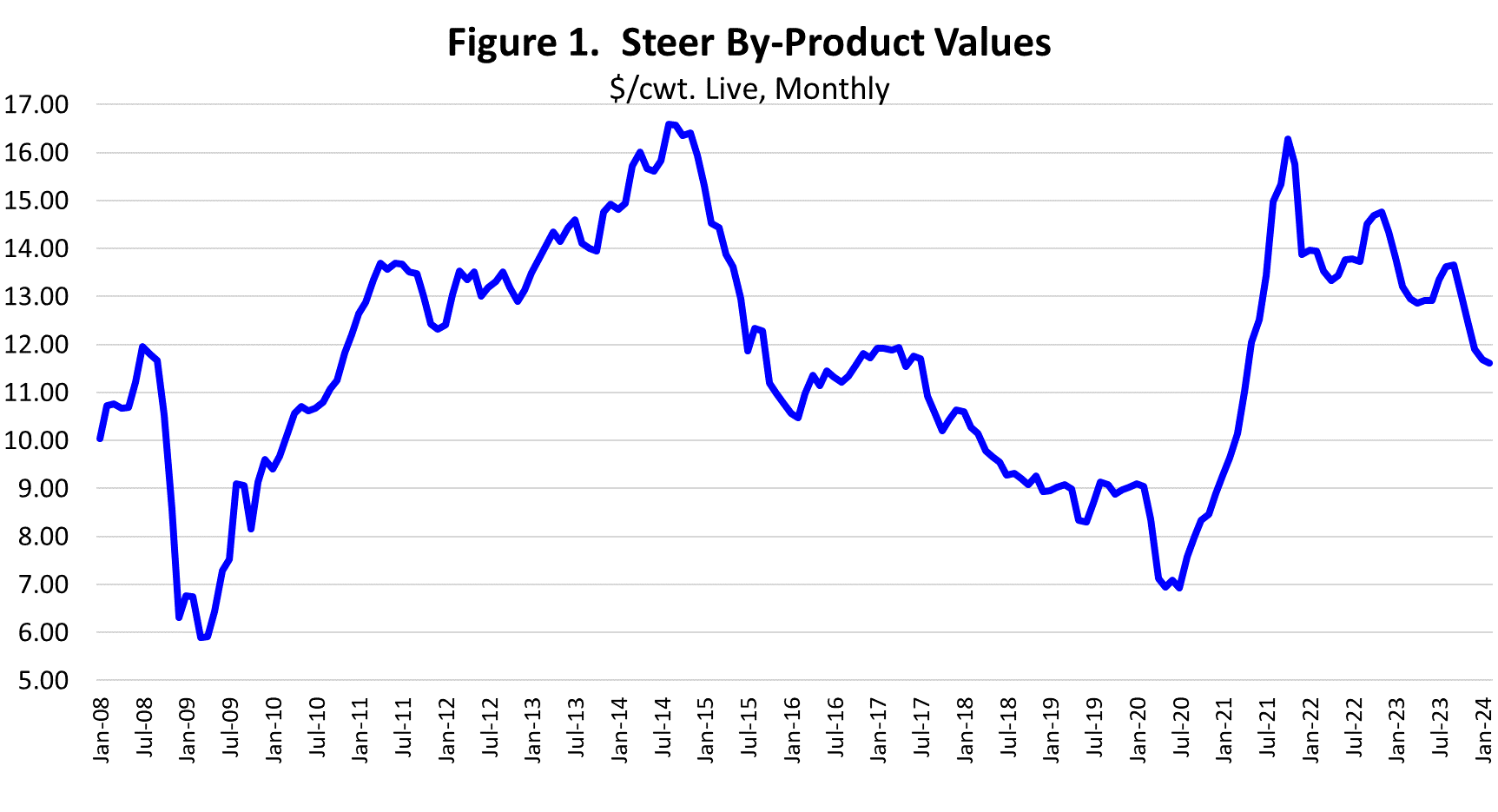By-products are a significant value component for the cattle and beef industry.
Derrell S. Peel, Oklahoma State University
The beef industry produces an enormous set of products. Among the thousands of different products are a wide range of edible and inedible by-products. USDA reports by-product values in several daily and weekly reports for steers, cattle, and cows. There are additional reports for detailed variety meat, hide and tallow values. Over the last fifteen years, steer by-product values have averaged $11.77/cwt. on a liveweight basis. That is roughly $165/head, or about 9.5 percent of the total value of a fed steer. In the 2009-2023 period, steer by-product values have varied from a monthly low of $5.90/cwt. to a high of $16.59/cwt. (Figure 1). As a percent of total fed steer value, the by-product value has varied from a low of 6.2 percent to a high of 13.1 percent.
The set of products included in total by-product values is quite varied and includes edible offals, inedible offals, meat. bone and blood meal, edible and inedible tallow, hides, and pharmaceutical products. Edible beef by-products include a variety of muscle and organ meats (e.g. liver, tongue, tripe, tripas, heart, oxtail, sweetbreads, edible tallow, and cheek and head meat, much of which is exported or used in processed products. Edible tallow is used for cooking and processed foods and bones are the source of gelatin used in many products (think gummy bears). Some tallow that is equivalent to edible grade is also used for cosmetics and soaps.
Organs that are inedible are used primarily for pet food, including lungs, trachea, inedible livers, and melts (spleen). Inedible tallow is used for industrial use and, more recently, for biodiesel production. Hides are a significant part of the total by-product value of cattle. Most hides are exported. Some products, such as gallstones and fetal blood serum, are harvested infrequently but have very high values.
Each of the many by-product items operates in a separate market with variable values and market conditions. These impact the total by-product value over time. For example, the high by-product values in 2014-2015 (Figure 1) were largely driven by very strong hide values. The more recent high prices in 2021-2022 were the result of very strong demand for tallow used for biodiesel production.
The steer by-product value for Friday, March 1, was $11.64/cwt. and shows that tallow is the largest contributor to by-product value at 20.3 percent of the total; hides were second at 18.4 percent; tongues at 15.2 percent; and tripe at 11.9 percent of the total by-product value. These total to roughly two-thirds of the total by-product value. Current by-product values represent about $165/head of total fed cattle value. With tight supplies driving beef and cattle prices higher, by-products currently represent a smaller percentage of total cattle value (6.4 percent) than the long-term average (9.5 percent).
By-products are a significant value component for the cattle and beef industry. By-product markets are varied and complicated and typically require significant volume. Capturing the value of by-products is challenging, especially for small packers. When by-products cannot be captured for value, they typically represent an additional cost for disposal.














